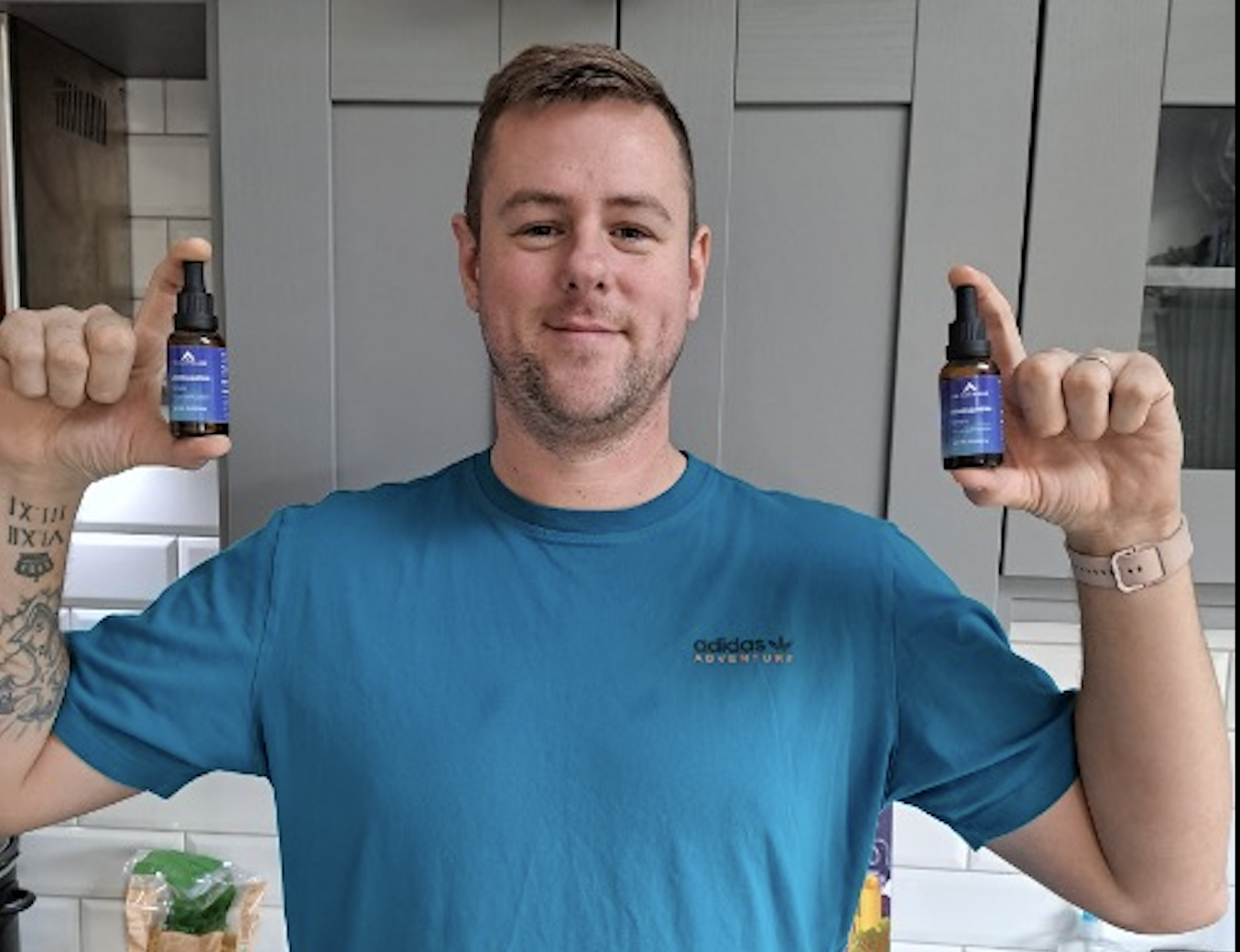Anxiety isn’t just about racing thoughts and shaky hands; it can also show up in how you feel physically. Tension headaches, a tight chest, and poor sleep often tag along with high stress. While we frequently focus on therapy or medication for relief, nutrition also plays a powerful role in managing anxiety. Think of your body like a car—if you fill it with the wrong fuel, it won’t run smoothly. The same goes for your mind: what you eat provides the building blocks for your brain to function.
This article will explore how food choices affect anxiety levels, from nutrient-packed meals that support a calm outlook to sneaky ingredients that can ramp up jittery feelings. By the end, you’ll see that balancing your plate isn’t just about physical health; it’s key to emotional well-being as well.
1: Understanding Anxiety and the Body
Anxiety is a state of heightened alertness. Your brain tells your body there’s a potential threat, sparking the fight-or-flight response. Stress hormones like cortisol and adrenaline flood your system, raising your heart rate and sharpening your senses. In short bursts, this can be helpful—imagine feeling alert before a big exam or on a hiking trail when you need to be cautious.
But when anxiety becomes a daily visitor, your system can’t relax. Elevated cortisol over time can lead to muscle tension, sleep disruption, and a worn-down immune system. This is where nutrition steps in: the right mix of nutrients can help regulate stress responses, while certain foods can drive them even higher.
2: Nutritional Basics—Fuel for a Balanced Brain
Your brain is an energy-intensive organ. In fact, it uses up more energy than most other parts of your body. To stay steady under stress, it relies on:
- Glucose (Sugar): The brain’s primary energy source. But it should come from complex carbohydrates like whole grains, fruits, and vegetables—not refined sugars that cause energy spikes and crashes.
- Amino Acids: Building blocks of proteins that help create neurotransmitters, the chemical messengers in your brain that influence mood.
- Essential Fatty Acids: Particularly omega-3 fatty acids, vital for brain health and reducing inflammation.
- Vitamins and Minerals: Such as B vitamins, magnesium, and zinc, which support healthy nerve and muscle function.
When you supply these nutrients consistently, your brain can handle stress better, keeping anxiety from spiraling out of control.
3: The Gut-Brain Connection
You’ve probably heard the phrase “butterflies in your stomach” to describe nervousness. It turns out your gut and brain are closely linked, a relationship often called the gut-brain axis. Within your gut reside trillions of bacteria—together forming what’s known as your microbiome. These helpful (and sometimes not-so-helpful) microbes can influence mood by creating or affecting neurotransmitters like serotonin (a chemical linked to feelings of well-being).
- Probiotics: Found in fermented foods like yogurt, kefir, kimchi, and sauerkraut. They help keep gut bacteria balanced, potentially easing anxiety.
- Prebiotics: These are the fibers that feed your gut’s healthy bacteria. Think garlic, onions, leeks, asparagus, and bananas.
When your gut bacteria are balanced, they can send positive signals to your brain, helping regulate stress and anxiety. But if your gut health is off—say from a diet high in processed foods—it might impact your mood negatively.
4: Key Nutrients to Help Manage Anxiety
- Magnesium
- Known as the “relaxation mineral,” magnesium helps regulate muscle and nerve function. Low levels can trigger irritability, restlessness, and even mild anxiety.
- Where to Find It: Dark leafy greens (spinach, kale), nuts (almonds, cashews), seeds (pumpkin, sunflower), and whole grains.
- B Vitamins
- B vitamins (such as B6, B9—folate, and B12) play a major role in forming neurotransmitters like serotonin and dopamine, both of which affect mood.
- Where to Find Them: Meat, poultry, fish, eggs, leafy greens, beans, and fortified cereals.
- Omega-3 Fatty Acids
- High in anti-inflammatory properties, omega-3s help maintain healthy brain cells. They may also help balance mood and reduce stress signals.
- Where to Find Them: Fatty fish (salmon, sardines, mackerel), chia seeds, flaxseeds, and walnuts.
- Vitamin D
- Often called the “sunshine vitamin,” it influences mood and overall mental health. Low levels can correlate with increased feelings of anxiety or depression.
- Where to Find It: Sunshine exposure, fortified dairy products, egg yolks, and fatty fish. Sometimes supplementation is needed if you live in a low-sunlight area.
- Antioxidants
- Chronic anxiety can be linked to oxidative stress, where harmful molecules known as free radicals outnumber your body’s defenses. Antioxidants help counteract free radicals.
- Where to Find Them: Berries (blueberries, strawberries), dark chocolate (in moderation), pecans, and brightly colored vegetables (bell peppers, carrots).
5: Foods to Avoid or Limit
Just as some foods can support calm, others can create or worsen anxiety. While it’s okay to enjoy these foods occasionally, going overboard might undo your stress-fighting efforts.
- Caffeine
- Found in coffee, tea, soda, and energy drinks. Caffeine can give you the jitters, increase heart rate, and heighten anxiety, especially if you’re sensitive to it.
- Tip: If quitting coffee seems impossible, try switching to half-caf or herbal teas.
- Refined Sugar
- White bread, candy, pastries, sugary drinks—these can cause a spike in blood sugar followed by a crash, leading to mood swings and more stress.
- Tip: Replace refined sweets with whole fruits or a square of dark chocolate.
- Alcohol
- While a glass of wine might feel relaxing at first, alcohol can interfere with sleep quality and deplete your body of B vitamins, leading to more anxiety in the long run.
- Tip: If you enjoy a social drink, keep it moderate (1 drink per day for women, 2 for men, as a general guideline).
- Trans Fats and Processed Foods
- Hydrogenated oils, packaged snacks, and fast-food meals can lead to inflammation. Chronic inflammation can worsen anxiety and mood disorders.
- Tip: Check labels for “hydrogenated” or “partially hydrogenated” oils. Better to stick with fresh or minimally processed meals.
6: Building a Balanced Diet to Support Calm
1. Start with Real, Whole Foods
Aim for foods as close to their natural state as possible—fresh fruits, vegetables, whole grains, lean proteins, and healthy fats. These supply the vitamins, minerals, and fiber your body needs to maintain even energy levels and a clear mind.
2. Balance Your Plate
- Protein (like chicken, fish, tofu): Builds and repairs tissues, produces hormones and enzymes.
- Carbohydrates (whole grains, beans, veggies): Steady fuel for your brain without causing crashes.
- Healthy Fats (avocado, olive oil, nuts): Helps slow digestion, keeping you full and your mood balanced.
3. Emphasize Fiber
High-fiber diets support gut health and stable blood sugar levels. Stable blood sugar means fewer mood swings and a lower chance of anxiety spikes throughout the day.
7: Sample Meal Ideas
Breakfast
- Whole-grain toast with avocado and a sprinkle of seeds (chia or sesame).
- A side of scrambled eggs or tofu for protein.
- Berries or sliced banana for natural sweetness.
Lunch
- A leafy green salad with spinach or kale.
- Top with grilled chicken or chickpeas (for plant-based protein).
- Add mixed veggies, nuts or seeds, and a simple olive oil and lemon juice dressing.
Snack
- Greek yogurt with blueberries and a drizzle of honey.
- A handful of walnuts or almonds.
Dinner
- Salmon (rich in omega-3) baked with herbs.
- Brown rice or quinoa on the side for complex carbs.
- Roasted vegetables like carrots and bell peppers.
Dessert
- Fresh fruit bowl or a square of dark chocolate (70% cocoa or higher) to keep sugar low.
8: The Connection Between Blood Sugar and Anxiety
When your blood sugar spikes (like after a sugary soda) then drops, you might feel shaky, irritable, and jittery—symptoms that mimic or worsen anxiety. Keeping your blood sugar steady throughout the day can help you feel calmer:
- Eat Smaller, Balanced Meals: Instead of one huge meal, spread your intake across 3 main meals and 2 light snacks if needed.
- Pair Carbs with Protein: Protein slows the absorption of carbs, preventing big spikes.
- Stay Hydrated: Dehydration can stress your body, leading to feelings of anxiety.
9: The Role of Hydration
It’s easy to forget about plain water when you’re busy or stressed, but staying hydrated is essential. Even mild dehydration can affect mood and energy. If you’re anxious, your heart may beat faster; losing fluids in the process can make anxiety feel worse.
- Aim for 6–8 glasses of water a day.
- If you don’t like plain water, infuse it with lemon, cucumber, or berries for flavor.
- Limit diuretics like coffee or tea, which can increase fluid loss.
10: Supplements for Anxiety Support
While whole foods should form the base of your nutrition, supplements can fill in any gaps. Always consult a healthcare professional before adding new supplements, especially if you’re on medication.
- Magnesium Supplements
- Can be helpful if you rarely eat magnesium-rich foods.
- Omega-3 Fish Oil
- If you don’t consume fish often, this can boost your intake of brain-healthy fats.
- B-Complex Vitamins
- Ensure you’re getting enough B12 and folate, crucial for nerve and brain function.
- Probiotics
- Support a healthy gut, which in turn helps the brain.
Keep in mind, supplements aren’t a substitute for a balanced diet, but they can help if you have specific deficiencies.
11: Emotional Eating and Anxiety
It’s common to reach for comfort foods—like ice cream or chips—during anxious times. Emotional eating can provide temporary relief, but it often leads to guilt or a sugar crash later. If you find yourself stress-snacking regularly:
- Pause and Check In: Am I truly hungry, or am I feeling stressed, sad, or bored?
- Mindful Eating: Sit down at the table, focus on each bite, and savor flavors instead of rushing.
- Stock Healthy Options: If your pantry is loaded with junk food, you’ll likely grab it. Keep fruit, nuts, and whole-grain crackers on hand for quick, healthier snacks.
12: Practical Tips for Busy People
Modern life is hectic. If you don’t have time to cook elaborate meals, you can still eat in a way that reduces anxiety:
- Meal Prep: Spend a couple of hours on the weekend chopping veggies, cooking grains, or portioning out snacks.
- Make Smoothies: Blend fruits, spinach, yogurt, and a handful of nuts for a quick dose of vitamins.
- Choose Quality Convenience Foods: Opt for healthy frozen meals (like veggie stir-fry) instead of fast food.
- Grab-and-Go Proteins: Hard-boiled eggs, cheese sticks, turkey slices, or hummus can offer quick, balanced snacks.
Even small changes add up. You don’t need to transform your entire diet overnight.
13: Combining Nutrition with Other Anxiety-Reducing Strategies
While food choices are a key component in managing anxiety, they’re just one part of the puzzle. You’ll likely see the best results if you pair good nutrition with:
- Regular Exercise: Moving your body releases endorphins, helping you burn off stress.
- Breathing Techniques: Simple exercises like box breathing or 4-7-8 breathing can quickly reduce panic and tension.
- Mindfulness or Meditation: A few minutes of guided meditation can reset a racing mind.
- Adequate Sleep: When you’re well-rested, your mood is more stable.
- Social Support: Talking to friends, family, or a counselor can help you process worries and reduce isolation.
Everything works best as part of an overall wellness plan.
14: Overcoming Barriers to Healthy Eating
No matter how good your intentions, life can get in the way. Maybe you’re juggling a demanding job, family responsibilities, or budget constraints. Here are some tips to tackle common barriers:
- Lack of Time: Rely on quick, healthy meals like omelets, veggie wraps, or slow-cooker soups that don’t require constant attention.
- Budget Concerns: Frozen produce is often cheaper and just as nutritious as fresh. Opt for beans, lentils, and whole grains in bulk.
- Stress or Lack of Energy: When anxiety drains your energy, keep meals extra simple—like a protein, a veggie, and a healthy carb.
- Eating Out: Choose grilled or baked menu items over fried, and add a side salad when possible.
Small, realistic adjustments are better than lofty plans that crumble under stress.
15: Final Thoughts—Nourish Your Body, Calm Your Mind
Anxiety can take over both mind and body, making it hard to enjoy the present moment or get a good night’s sleep. While there’s no single magic food that wipes out worry, a balanced diet packed with essential nutrients gives your body the tools it needs to handle stress. By focusing on whole foods, key nutrients, and healthy habits, you set a strong foundation for resilience.
Remember, diet is just one piece of the puzzle. A well-rounded approach—combining smart nutrition with physical activity, stress management techniques, and plenty of rest—can go a long way toward keeping anxiety at bay. If your anxiety feels overwhelming, don’t hesitate to reach out to a mental health professional for extra support.
Here are the key takeaways:
- Balance Your Plate with proteins, complex carbs, and healthy fats to stabilize mood and energy.
- Seek Out Key Nutrients like magnesium, B vitamins, and omega-3s to support brain health.
- Limit Anxiety-Boosters such as caffeine, refined sugar, and alcohol.
- Stay Hydrated and keep your blood sugar steady to avoid jittery crashes.
- Embrace a Whole-Life Approach: Combine good nutrition with exercise, mindfulness, and strong social support.
By making small, consistent changes to your eating habits, you can help ease anxiety’s grip. Over time, you’ll likely notice better mood stability, improved energy, and a sense of control over your well-being. Here’s to nourishing your body—and calming your mind!




